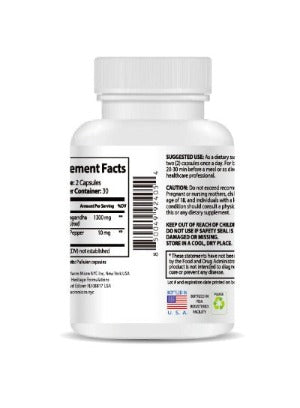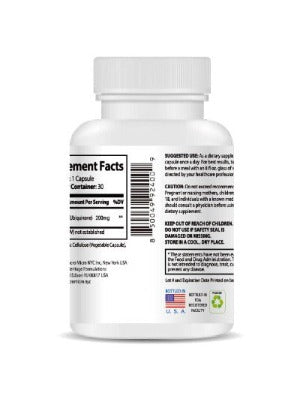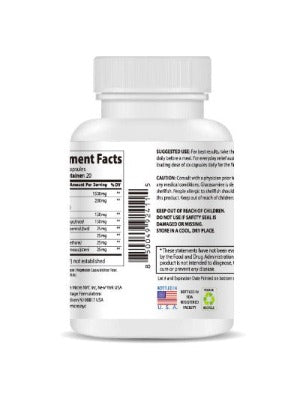Do your eyes often feel gritty, as if a grain of sand is perpetually stuck in them? Do you experience burning, stinging, or intermittent blurry vision, especially after a long day of work on the computer? If so, you’re not alone. Millions of people worldwide dismiss these symptoms as simple "eye strain" or a minor annoyance of modern life.
But what if we told you that this common condition, known as Dry Eye Syndrome, is more than just an inconvenience? What if, left untreated, chronic dry eye could potentially lead to serious corneal damage and even vision loss?
It’s a startling thought, but it’s a reality that underscores the importance of taking eye health seriously. While conventional treatments like artificial tears can provide temporary relief, they often fail to address the underlying cause. This is where the ancient wisdom of Traditional Chinese Medicine (TCM) offers a profound, holistic, and natural path not just to relief, but to lasting healing.
This comprehensive guide will explain the serious risks of untreated dry eye, delve into the TCM perspective on eye health, explore powerful natural therapies, and provide you with practical prevention strategies to protect your precious eyesight.
More Than Just an Annoyance: Understanding Dry Eye Syndrome
Before we explore the solution, let's understand the problem. Dry Eye Syndrome occurs when your eyes do not produce enough tears, or when they produce poor-quality tears that evaporate too quickly.
A healthy tear film is a complex, three-layered coating that is essential for clear vision and comfort. It consists of:
-
The Oily Layer (Outer): Produced by meibomian glands in the eyelids, it prevents tear evaporation.
-
The Watery Layer (Middle): Produced by the lacrimal glands, it nourishes and cleans the cornea.
-
The Mucus Layer (Inner): Produced by conjunctival cells, it helps the tear film adhere to the eye's surface.
An imbalance in any of these layers can lead to Dry Eye Syndrome. Common symptoms include:
-
A stinging, burning, or scratching sensation
-
Redness and inflammation
-
A feeling of having something in your eyes
-
Stringy mucus in or around the eyes
-
Sensitivity to light
-
Difficulty wearing contact lenses
-
Periods of excessive tearing (a reflex response to the irritation)
-
Blurred vision, often worsening at the end of the day or after prolonged focus
The Alarming Link: How Can Dry Eye Lead to Vision Loss?
This is the crucial point that is often overlooked. Your tear film acts as the first line of defense for your cornea—the transparent front part of your eye that covers the iris and pupil. It is a protective shield that lubricates the eye's surface, washes away debris, and contains infection-fighting components.
When this shield is compromised due to chronic dry eye, the cornea becomes vulnerable. Persistent dryness leads to inflammation. This inflammation can damage the cells on the cornea's surface, creating microscopic rough spots. In severe, chronic, and untreated cases, this can escalate to:
-
Corneal Abrasions: The dry surface is more susceptible to scratches.
-
Corneal Ulcers: Open sores can form on the cornea, which are extremely painful and can lead to infection.
-
Corneal Scarring: As ulcers and abrasions heal, they can leave behind scar tissue. Because the cornea needs to be perfectly transparent for light to pass through, any scarring can permanently impair and blur vision.
-
Increased Risk of Infection: The protective barrier is gone, making the eye an easy target for bacteria and viruses.
While total blindness from dry eye is rare, the potential for permanent vision impairment is a serious risk that warrants a proactive approach to treatment.
The TCM Perspective: Seeing the Bigger Picture of Eye Health
In Traditional Chinese Medicine, the body is seen as an interconnected ecosystem, not a collection of separate parts. Symptoms are rarely isolated; they are signals of a deeper, systemic imbalance. The eyes, in particular, are considered a "window" to the health of our internal organs.
TCM doesn't just ask, "Why are the eyes dry?" It asks, "Why is the body failing to moisten and nourish the eyes?" The answer often lies with two primary organ systems: the Liver and the Kidneys.
The Liver "Opens into the Eyes"
A foundational concept in TCM is that "the Liver opens into the eyes." This means the health of the Liver organ-meridian system is directly reflected in the condition of your eyes. The Liver is responsible for storing Blood and ensuring the smooth flow of Qi (vital energy) throughout the body.
When Liver Blood is abundant and flowing freely, it travels upward to nourish the eyes, keeping them moist, bright, and clear. However, if there is a Liver Blood Deficiency, the eyes will lack nourishment, leading to dryness, floaters, and blurry vision. This can be caused by poor diet, overwork, or blood loss.
Furthermore, stress, frustration, and anger can cause Liver Qi Stagnation. This "stuck" energy can generate heat, which rises to the head and "scorches" the fluids in the eyes, causing redness, irritation, and a feeling of pressure.
The Role of the Kidneys in Moistening the Eyes
In TCM, the Kidneys are the foundation of all Yin and Yang in the body. Kidney Yin represents the body's fundamental fluids and cooling, moistening essence. As we age, our Kidney Yin naturally declines.
A Kidney Yin Deficiency is a primary cause of systemic dryness throughout the body, manifesting as dry skin, a dry throat, and, most prominently, dry eyes. Because the Kidneys provide the foundational fluids for the entire body, a deficiency here means the Liver also lacks the fluids it needs to nourish the eyes effectively.
Natural Healing with TCM: Therapies for Lasting Dry Eye Relief
A TCM practitioner's goal is to identify and correct the specific root imbalance causing your dry eye. The treatment is holistic, gentle, and designed to restore your body's innate ability to heal itself.
1. Acupuncture: Restoring Flow and Moisture
Acupuncture involves the insertion of ultra-fine, sterile needles into specific points on the body. For dry eyes, points are often chosen around the eyes, on the hands and feet, and along the Liver and Kidney meridians. It works by:
-
Increasing Blood Flow: Stimulating local points around the eyes improves circulation, bringing vital nutrients and oxygen to the eye structures.
-
Nourishing Yin and Blood: Activating specific distal points helps to strengthen the Liver and Kidney systems, encouraging the body to produce more fluids.
-
Reducing Inflammation: Acupuncture has been shown to have powerful anti-inflammatory effects.
-
Calming the Nervous System: It helps to resolve Liver Qi Stagnation caused by stress, which is a major contributing factor for many people.
2. Chinese Herbal Medicine: Nourishing from Within
Chinese herbal formulas are sophisticated combinations of plants and minerals that are tailored to your unique TCM diagnosis. Unlike a single supplement, these formulas work synergistically to address the root cause. For dry eye, a formula might aim to:
-
Nourish Liver and Kidney Yin: Using herbs like Gou Qi Zi (Goji Berry), Shu Di Huang (Rehmannia Root), and Shi Hu (Dendrobium).
-
Nourish Liver Blood: Incorporating herbs like Dang Gui (Angelica Sinensis) and Bai Shao (White Peony Root).
-
Clear Liver Heat: Using cooling herbs like Ju Hua (Chrysanthemum Flower) and Bo He (Mint).
A qualified herbalist will create a personalized prescription to rebalance your internal ecosystem and restore proper fluid metabolism.
3. Acupressure at Home: Your DIY Eye Spa
You can support your professional treatments with simple acupressure at home. Use your fingertip to apply firm but gentle pressure to these points for 1-2 minutes each day:
-
Jingming (UB-1): In the small hollow at the inner corner of your eye. (Be gentle).
-
Zanzhu (UB-2): In the depression at the inner end of your eyebrow.
-
Taiyang (Ex-HN5): In the tender depression of your temple, about one thumb-width from your eyebrow's outer edge.
-
Hegu (LI4): In the fleshy webbing between your thumb and index finger. This is a powerful point for all issues related to the head and face.
4. TCM Dietary Therapy: Eating for Eye Health
Food is medicine. TCM recommends specific foods to combat dryness:
-
Incorporate Yin-Nourishing Foods: Pears, apples, mulberries, goji berries, black sesame seeds, walnuts, fish, eggs, and small amounts of lean pork.
-
Eat Blood-Building Foods: Dark leafy greens (spinach, kale), beets, carrots, and lean red meat.
-
Stay Hydrated: Drink plenty of room-temperature water throughout the day.
-
Avoid Drying and Heating Foods: Limit coffee, alcohol, spicy foods, and deep-fried or heavily processed meals, as these can deplete fluids and create more inflammation.
Proactive Prevention: Lifestyle Habits for Healthy Eyes
Beyond specific treatments, simple lifestyle adjustments can make a world of difference:
-
Follow the 20-20-20 Rule: When using digital screens, every 20 minutes, look at something 20 feet away for at least 20 seconds.
-
Blink Consciously: We blink up to 60% less when staring at a screen. Make a conscious effort to blink fully and frequently to recoat your eyes with tears.
-
Optimize Your Environment: Use a humidifier at your desk or by your bed. Position your screen to avoid glare and direct air from fans or vents away from your face.
-
Prioritize Sleep: In TCM, the Liver recharges and detoxifies between 1 AM and 3 AM. Adequate, restful sleep is essential for Liver health and, by extension, eye health.
-
Manage Stress: Since stress directly impacts the Liver, practices like meditation, deep breathing, yoga, or even a simple walk in nature can help keep your Qi flowing smoothly.
Your vision is one of your most precious assets. Don't dismiss the warning signs of dry eye. By understanding its potential severity and embracing the holistic, root-cause approach of Traditional Chinese Medicine, you can move beyond temporary fixes and cultivate long-term eye health and comfort from the inside out.
Q&A: Your Questions About Eye Discomfort Answered
Q1: My eyes are often very watery and tear up easily, especially in the wind. How can this be a symptom of dry eye? It seems like the opposite!
A: This is an excellent and very common question. This phenomenon is known as "reflex tearing." When the eye's surface is overly dry and irritated, it sends a distress signal to the brain. The brain then commands the lacrimal glands to open the floodgates and produce a large volume of watery tears to try and wash away the irritant. However, these emergency tears are often of poor quality, lacking the balanced oily and mucus layers needed to properly adhere to and lubricate the eye. So, they just run down your face without providing lasting relief, leaving the underlying dryness and irritation unresolved.
Q2: Can't I just keep using over-the-counter artificial tears? Is TCM really necessary?
A: Artificial tears can be very helpful for providing immediate, temporary relief and are a useful tool in managing symptoms. However, they are like watering a plant whose roots are unable to absorb moisture. They only address the surface-level symptom of dryness. TCM, on the other hand, aims to fix the "roots" of the problem—the internal imbalance (like Liver Blood Deficiency or Kidney Yin Deficiency) that is preventing your body from producing its own high-quality tears. By addressing the root cause with acupuncture, herbs, and diet, the goal of TCM is to restore your body’s natural function so you can become less dependent on eye drops over time.
Q3: I’m interested in acupuncture, but I’m afraid of needles, especially around my eyes. Is it painful?
A: This is a very common and understandable concern. It’s important to know that acupuncture needles are incredibly fine—many are as thin as a strand of hair. They are nothing like the hypodermic needles used for injections. When treating the eyes, practitioners are extremely skilled and gentle. The needles are typically inserted into points on the brow bone, cheekbone, or temple area—not directly into the eyeball itself. Most patients report feeling little to no pain, often just a slight pinch or a dull, heavy sensation at the point of insertion, which is a sign that the body's Qi has been activated. Many people find the experience deeply relaxing.
Q4: How long does it take to see results for dry eye with TCM treatments like acupuncture and herbs?
A: The timeline for results varies depending on several factors, including how long you've had the condition, its severity, your overall health, and your adherence to lifestyle and dietary recommendations. Some patients report a noticeable reduction in irritation and an increase in comfort within the first few acupuncture sessions. For chronic and more complex cases, a more consistent course of treatment over several weeks or months is typically required to address the deep-seated root imbalances. The key is that TCM aims for gradual, sustainable improvement rather than a quick, temporary fix.
Q5: What are one or two simple things I can add to my diet right now to start helping my dry eyes from a TCM perspective?
A: Absolutely. A great and simple place to start is with goji berries (Gou Qi Zi) and chrysanthemum flowers (Ju Hua). You can make a simple, pleasant-tasting tea by steeping a small handful of dried goji berries and a few dried chrysanthemum flowers in hot water for about 10 minutes. In TCM, goji berries are famous for nourishing the Liver and Kidneys to benefit the eyes, while chrysanthemum helps to clear heat and soothe irritation. You can find both in most Asian markets. This tea is a wonderful daily ritual to gently nourish and support your eye health from within.









